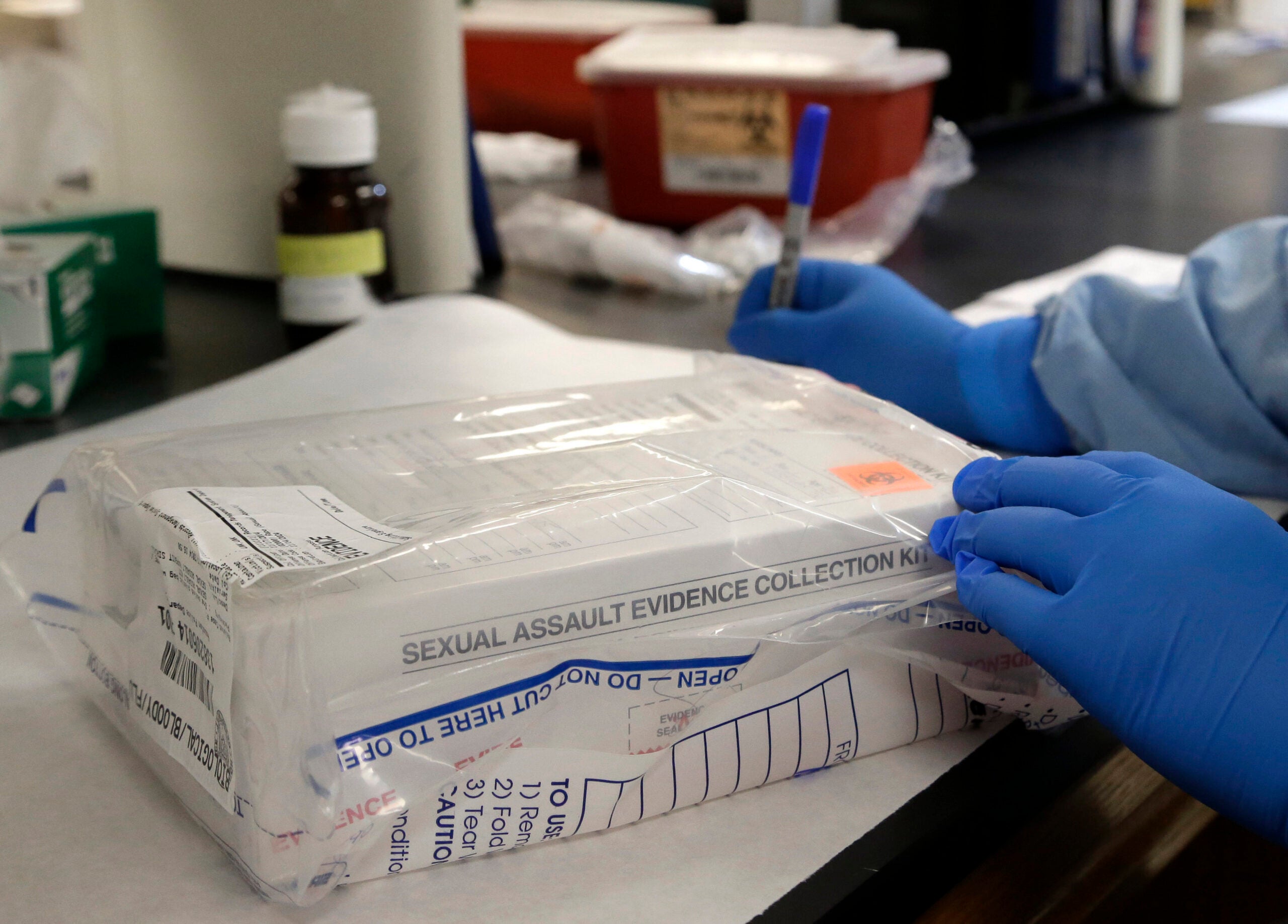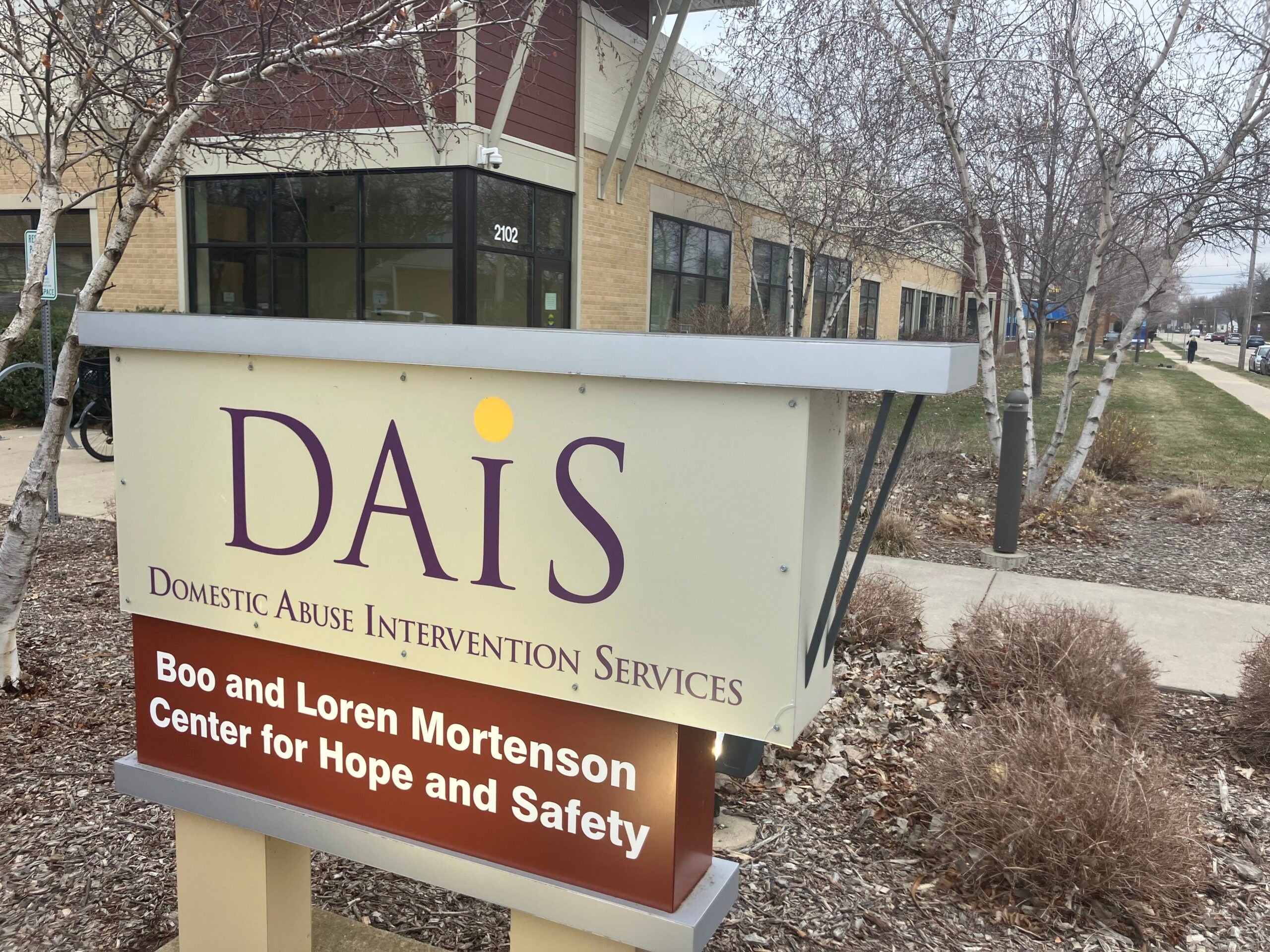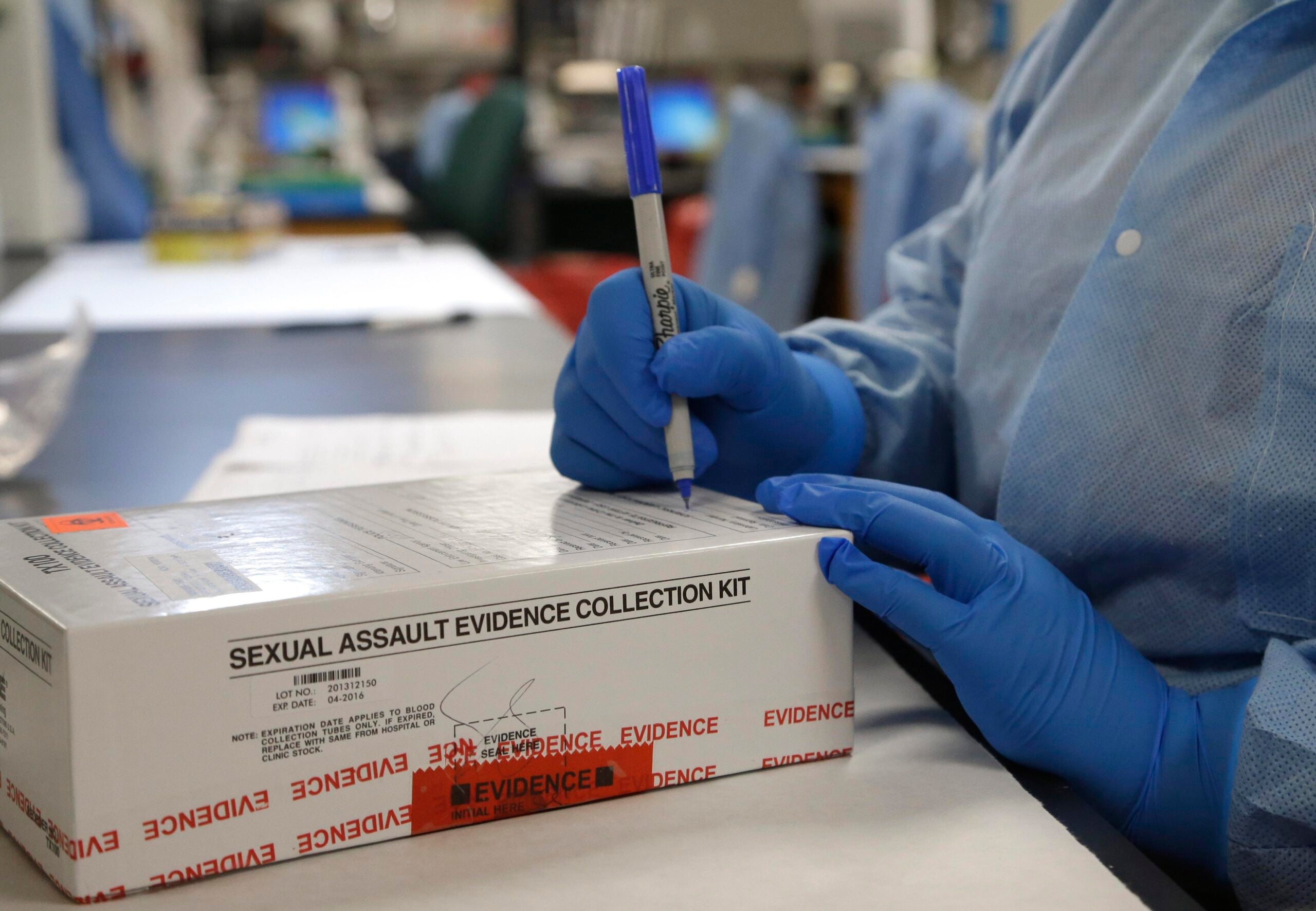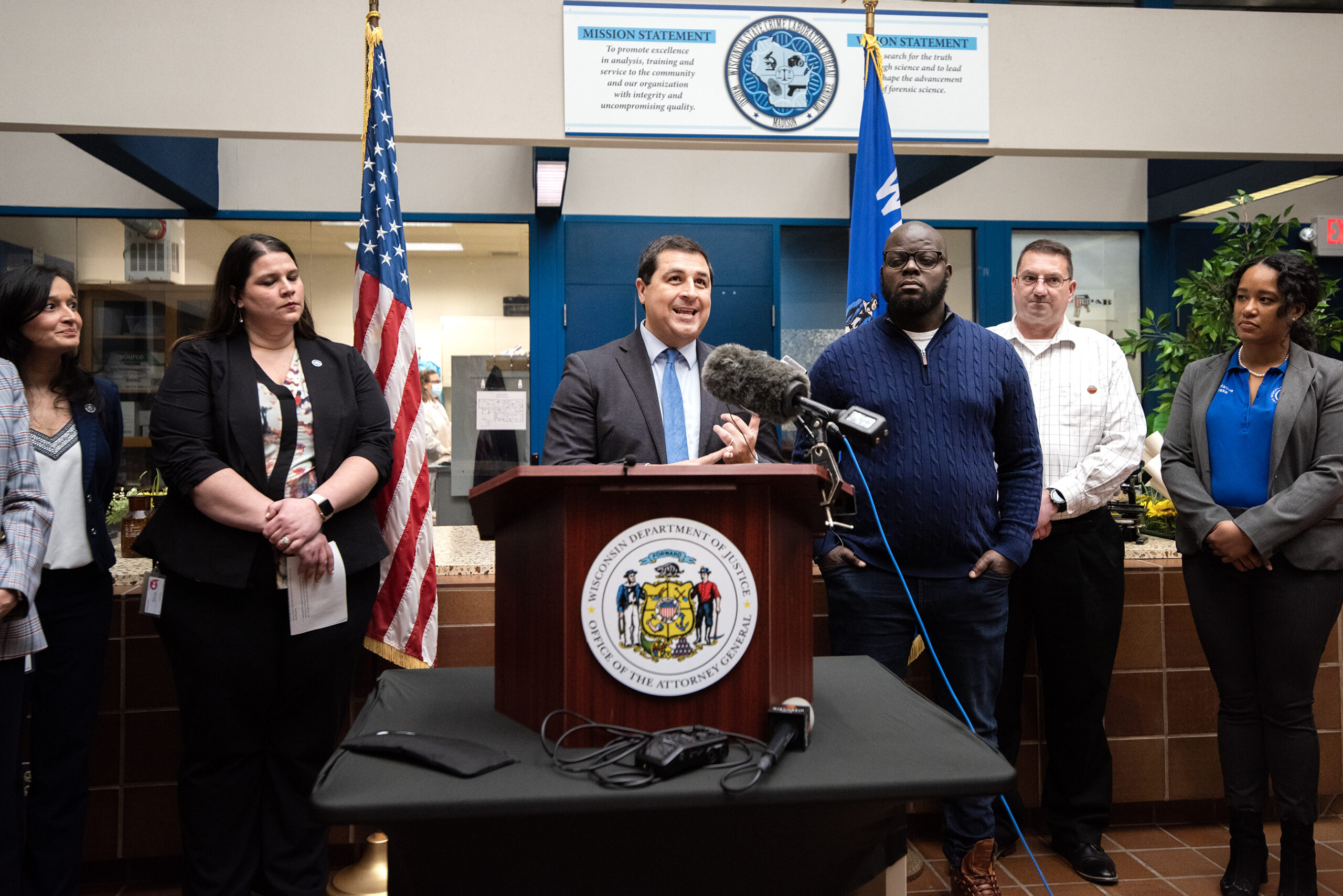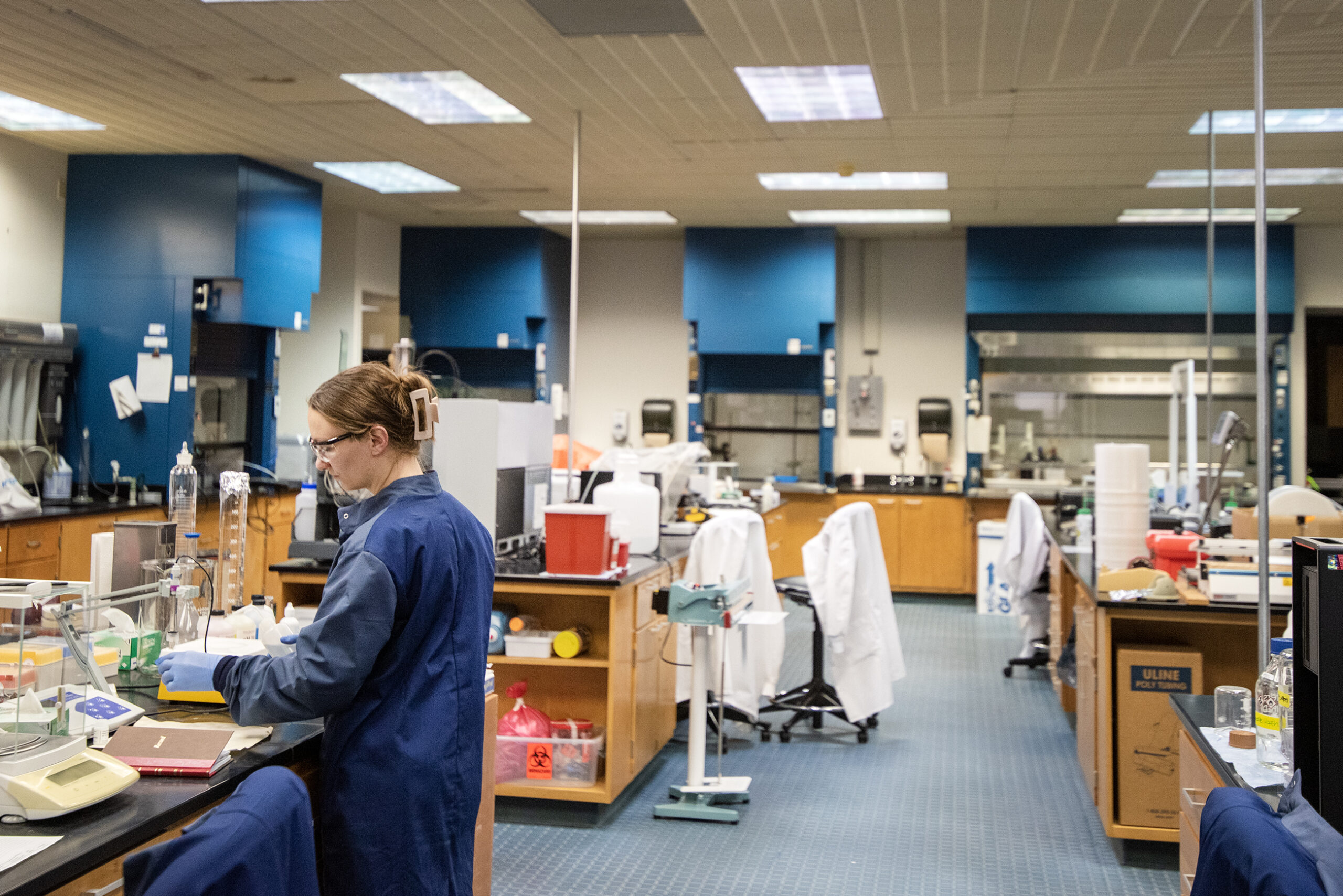Survivors of sexual assault will be able to track the processing of evidence in their cases using a new tool announced by Wisconsin Attorney General Josh Kaul.
Called Track-Kit, the technology assigns an anonymized barcode to every sexual assault kit taken as evidence. Using a secure website, the survivors submitting the evidence can track where the kit is as it is tested for DNA at labs and kept as evidence by law enforcement officials.
At a press conference in Madison last week to announce the launch of the system, Kaul said it is part of a “victim-centric” approach to handling sexual assault cases.
Stay informed on the latest news
Sign up for WPR’s email newsletter.
“Through this system, we are empowering survivors of sexual assault to learn information about their kits when they choose to learn that information,” Kaul said.
Advocates said it removes the burden of having to call multiple law enforcement agencies, crime labs and health care providers just to get an update on the status of their case. The system also complies with recently passed laws that require the state to process the kits in a timely manner and create a tracking system.
Those laws came about nearly seven years after officials at the Wisconsin Department of Justice discovered in 2014 that more than 6,000 sexual assault kits had never been tested. In many cases, they were found to have been sitting in evidence lockers for years or even decades.
The discovery prompted a public outcry about the backlog and played a role in state attorney general elections in 2014 and again in 2018, when then-Attorney General Brad Schimel announced weeks before the election that testing on the backlogged kits had been completed. Schimel lost his reelection bid to Kaul, who has since brought charges in multiple sexual assault cases using evidence from the long-untested kits. Kaul also pressured Republican lawmakers to pass the bills that now make a new backlog illegal.
Advocates said the tracking system is a significant step forward for survivors.
Before now, said Dana Pellebon, co-executive director of Madison’s Rape Crisis Center, “once the kit was collected, the survivor had no knowledge of where that kit was, who it was with, or who had access to it.”
“This is deeply personal information from their body,” Pellebon said. “Yet the survivor had no information, creating yet another disempowering experience for them.”
Kim Curran, a nurse practitioner with the nonprofit DaneMAC, said she has collected more sexual assault kits than she can count. She’s also seen survivors reduced to feeling helpless when they couldn’t access information about their cases.
“To be able to say … ‘Here is what is happening with the evidence in my case’ is vital for survivors to feel a sense of control and a sense of empowerment,” Curran said. “Those types of choices are the things that empower survivors to move on and to heal.”
Wisconsin Public Radio, © Copyright 2025, Board of Regents of the University of Wisconsin System and Wisconsin Educational Communications Board.
